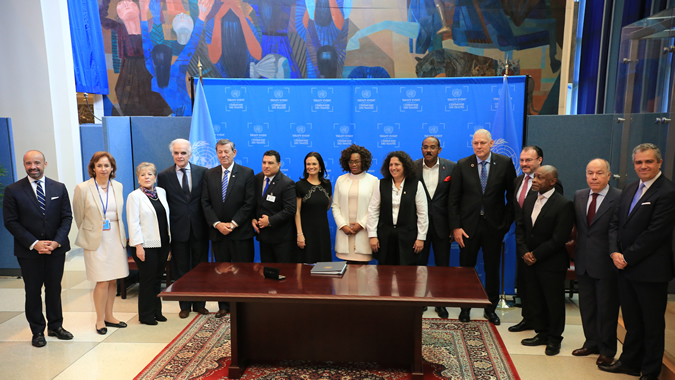Expanding the debate in Latin America

Over recent months, there has been growing interest in Latin America and the Caribbean to better understand emerging approaches to the climate crisis, including large-scale carbon dioxide removal and solar radiation modification.
This has been matched by rising concern about their potential impacts and threats, particularly for the most vulnerable and historically marginalized communities.
Indigenous and civil society groups in the region have a vibrant history challenging actions that could threaten their rights, and the rights of future generations, to a safe and healthy environment.
Their participation in governing emerging climate technologies will be essential from the earliest stages, to ensure the long-term success of any regional strategy.
In particular, these groups are paying growing attention to the potential for nature-based approaches to remove atmospheric CO2. These could either provide them with new opportunities and alternatives, or threaten their livelihoods and survival.
Working with ECLAC
In late April, C2G2 and the UN’s Economic Commission for Latin America and the Caribbean (ECLAC) convened a side event to discuss these issues at the Third Forum of the Countries of Latin America and the Caribbean on Sustainable Development.
The event was inspired by a regional commitment adopted last year to promote access to information, public participation and justice in environmental matters in the region, called the Escazú Agreement.

Fourteen Latin American and Caribbean countries were the first to sign the Escazú Agreement (Photo credit: ECLAC)
One of the groundbreaking provisions of this agreement is that it aims to guarantee and safeguard the rights of environmental rights defenders. Latin America has a longstanding history of conflict over natural resources, and is considered to be the deadliest region in the world for environmental defenders – accounting for almost 60% of their deaths worldwide.
The agreement also seeks to guarantee access to information and active participation in decision-making processes for the nearly 650 million Latin Americans and Caribbean people whose lives would be directly affected by these decisions. It is a firm step to show the region’s commitment to fighting against environmental threats, whilst leaving no one behind.
Some of the key concerns that emerged at our discussion were that governance of any emerging approaches must not replace the reduction of greenhouse gas emissions, and should avoid unilateral deployment or the predatory use of technologies at all costs.
There were also concerns about the economics: who would pay for these approaches, and who would reap the benefits? How would consequences be addressed? How would these decisions be taken?
Overall, the main takeaway was that a broad a range of actors need to get involved in this conversation as early as possible, to access and produce more information, so they can make properly informed decisions.
This matches one of our key goals at C2G2, and we look forward to intensifying this work in Latin America and the Caribbean (and worldwide) over the coming months and years.